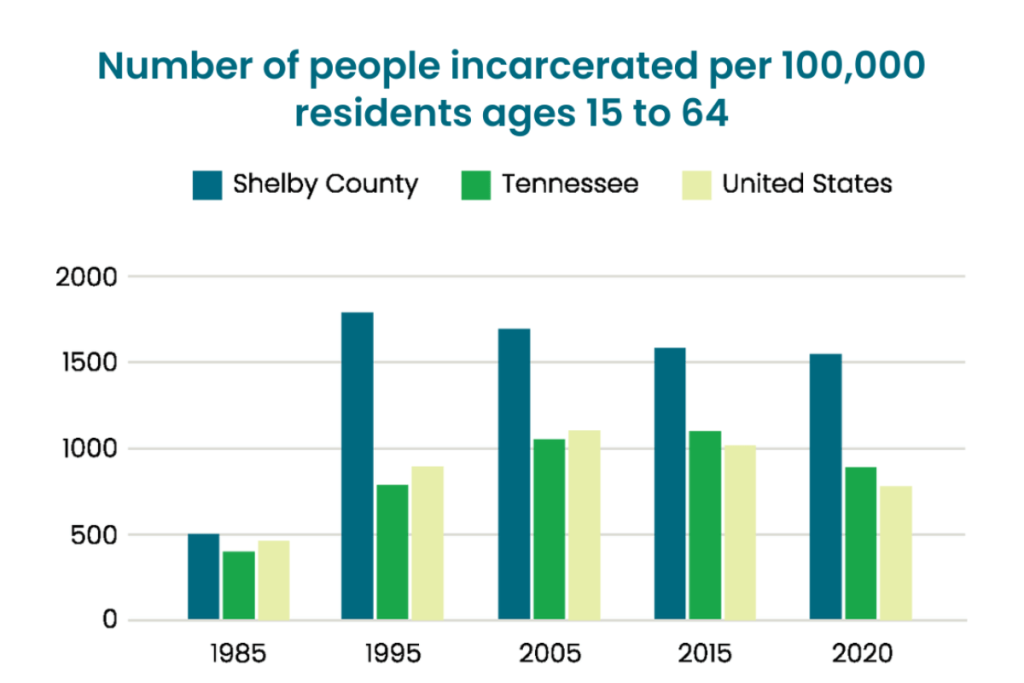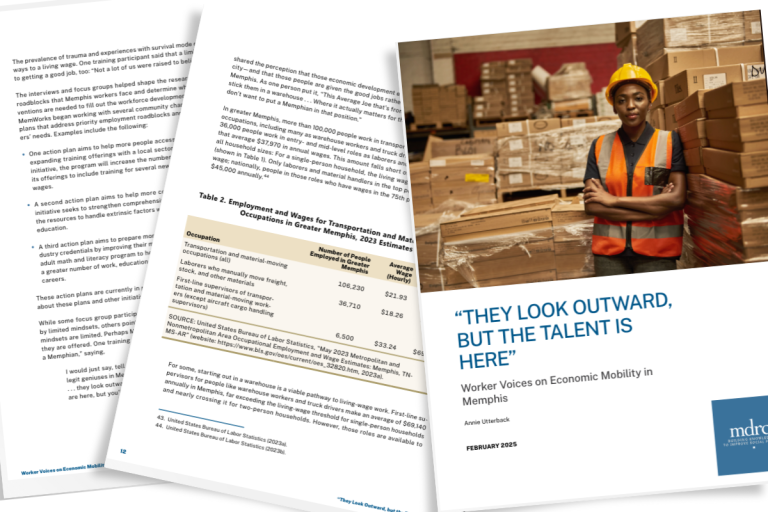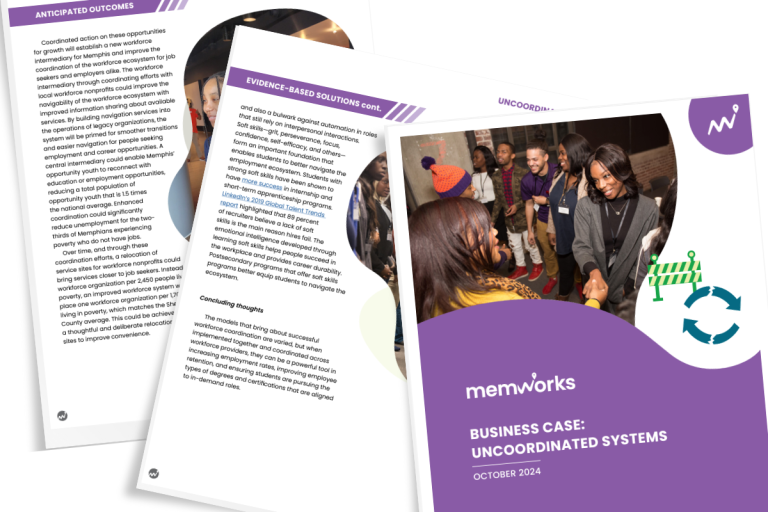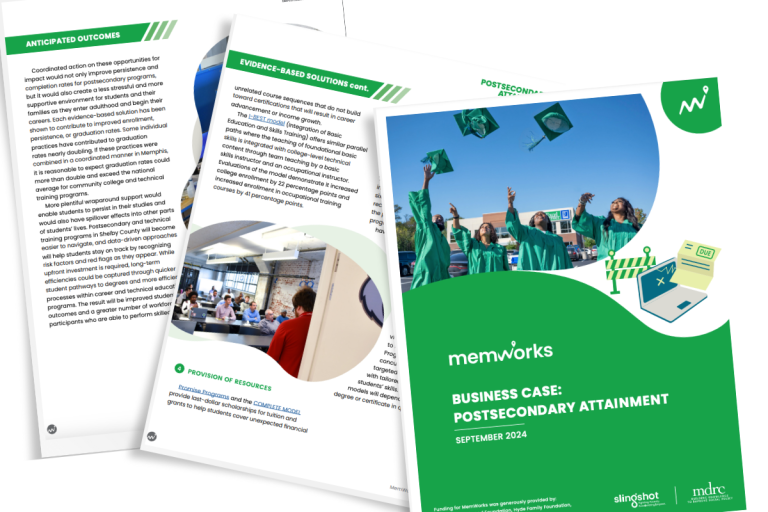Involvement with the criminal legal system can impose overwhelming barriers to achieving economic stability
MemWorks originally identified 10 roadblocks that are impeding employment pathways for Memphians experiencing poverty. After completing our research about the lived experience, we were able to develop a fact base to substantiate an eleventh roadblock – Criminal Legal System Impact.
People impacted by the criminal legal system, including those who have been previously incarcerated, face significant barriers to achieving basic stability, let alone economic mobility. For Memphis, there is a disproportionate number of people who struggle with these barriers.

The number of Shelby County residents who have been incarcerated has more than tripled since 1985. Memphis has consistently had significantly higher rates of incarceration than both Tennessee and the United States, with Shelby County’s rate being an estimated 95 percent higher than the national average.

A research study found that 80 percent of people who reenter from the criminal legal system earn less than $15,000 during the first calendar year after reentry, with 45 percent reporting no earnings at all. One contributing factor is business practices that limit job opportunities, such as algorithms that automatically remove candidates with a criminal record from consideration. Another factor is the quality of jobs that businesses are willing to hire a person with a prior felony conviction that result in earning less than a living wage and not receiving health benefits.

In addition to employment barriers, people with a criminal record face other barriers such as revoked driver’s licenses from unpaid legal debts (e.g., bail, court fees, etc.) and housing application rejections. Given the significant shortage of affordable housing in Shelby County, finding stable housing is even harder for those impacted by the criminal legal system. People can fill out an application, pay the non-refundable application fee, only then to be told they will not be considered due to their criminal record.

With all the barriers to economic stability for people who have been previously incarcerated, a large proportion unfortunately return to prison within three to five years. This does not have to be the case, however, as there is evidence that shows helping people overcome obstacles to securing stable housing, transportation, and skills development improves employment outcomes and lowers recidivism.

“…someone reentering society from incarceration with unpaid debts and revoked driver’s license may have more trouble securing a job, housing, and financial stability – all associated with reduced recidivism. Unintended consequences like these can play out in a number of ways.”





